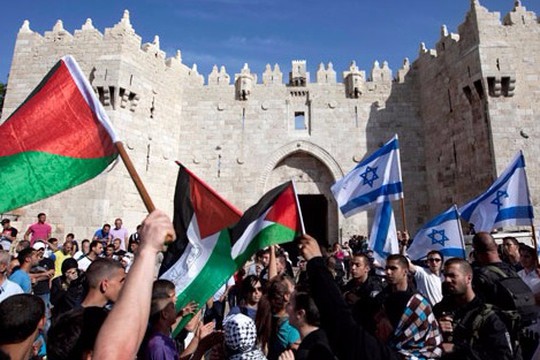Photo: Counter Punch
At one time, the ‘Arab-Israeli Conflict’ was Arab and Israeli. Over the course of many years, however, it was rebranded. The media is now telling us it is a ‘Hamas-Israeli conflict’, writes Ramzy Baroud, the editor of ‘The Palestine Chronicle’.
But what went wrong? Israel simply became too powerful.
The supposedly astounding Israeli victories over the years against Arab armies have emboldened Israel to the extent that it came to view itself, not as a regional superpower, but as a global power as well. Israel, per its own definition, became ‘invincible’.
Such terminology was not a mere scare tactic aimed at breaking the spirit of Palestinians and Arabs alike. Israel believed this.
The ‘Israeli miracle victory’ against Arab armies in 1967 was a watershed moment. Then, Israeli ambassador to the United Nations, Abba Eban, declared in a speech that “from the podium of the UN, I proclaimed the glorious triumph of the IDF and the redemption of Jerusalem.”
This, in his thinking, could only mean one thing: “Never before has Israel stood more honored and revered by the nations of the world.”
The sentiment in Eban’s words echoed throughout Israel. Even those who doubted their government’s ability to completely prevail over the Arabs, joined the chorus: Israel is unvanquishable.
Little rational discussion took place back then, about the actual reasons why Israel had won, and if that victory would have been possible without Washington’s complete backing and the West’s willingness to support Israel at any cost.
Israel was never a graceful winner. As the size of territories controlled by the triumphant little state increased by three-fold, Israel began entrenching its military occupation over whatever remained of historic Palestine.
Fifty years ago, in October 1973, Arab armies attempted to reverse Israel’s massive gains by launching a surprise attack. They initially succeeded, then failed when the US moved quickly to bolster Israeli defenses and intelligence.
It was not a complete victory for the Arabs, nor a total defeat for Israel. The latter was badly bruised, though. But Tel Aviv remained convinced that the fundamental relationship it had established with the Arabs in 1967 had not been altered.
And, with time, the ‘conflict’ became less Arab-Israeli and more Palestinian-Israeli.
This changing reality meant that Israel could invade South Lebanon in March 1978, and then sign the Camp David Peace Accords with Egypt, six months later.
While the Israeli occupation of Palestine grew more violent, with an insatiable appetite for more land, the west turned the Palestinian struggle for freedom into a ‘conflict’ to be managed by words, never by deeds.
Many Palestinian intellectuals make a point of arguing that “this is not a conflict”, that military occupation is not a political dispute, but governed by clearly defined international laws and boundaries. And that it must be resolved according to international justice.
That is yet to happen. Neither was justice delivered, nor an inch of Palestine was retrieved, despite the countless international conferences, resolutions, statements, investigations, recommendations, and special reports. Without real enforcement, international law is mere ink.
The isolation of Palestine from its regional context has proven disastrous.
When the ‘conflict’ is only with the Palestinians, then Israel determines the context and scope of the so-called conflict, what is allowed at the ‘negotiations table’, and what is to be excluded. This is how the Oslo Accords squandered Palestinian rights.
The more Israel succeeds in isolating Palestinians from their regional environs, the more it invests in their division.
It is even more dangerous when the conflict becomes between Hamas and Israel. The outcome is a whole different conversation that is superimposed on the truly urgent understanding of what is taking place in Gaza, in the whole of Palestine at the moment.
For this vicious cycle to break, Palestine must, once more, become an issue that concerns all Arabs, the whole region. The Israeli narrative must be countered, western bias confronted, and a new, collective strategy formed.
In other words, Palestine cannot be left alone anymore, Ramzy Baroud stresses.
read more in our Telegram-channel https://t.me/The_International_Affairs

 8:36 21.10.2023 •
8:36 21.10.2023 •























